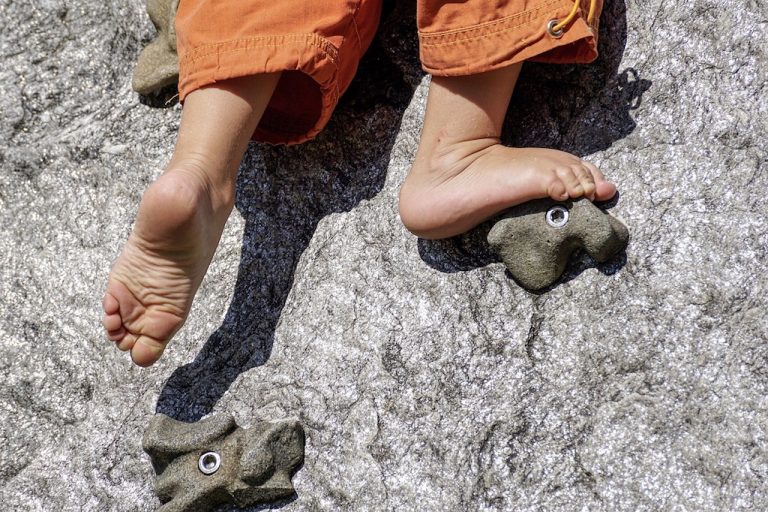SingaporeMotherhood | Parenting
September 2018
Accountability: Teach your Child the Most Important Value of all

Simply put, accountability is being responsible for your own behaviour and actions. It’s a big word for what seems like human behaviour that should be normal, right? However, in reality, accountability is harder to practice than we think. Everyone needs to be responsible for their actions. This means not making excuses for your behaviour or refusing to take responsibility when something goes wrong, or doesn’t happen. The word to describe this is ‘accountability’.
Why is accountability important for children (and parents too) to learn anyway? According to experts, creating a culture of personal accountability within your home means that everyone knows and understands house rules and expectations, and knows that they are accountable for how they behave. “In this way, children avoid a pattern of avoidance with excuses and learn to take responsibility,” explains Dr Natalie Games, a psychologist at Alliance Professional Counselling.
Explaining accountability to your children
For young children, accountability can be a tricky concept to grasp. One way to give little ones an idea of accountability is to introduce the idea of cause and effect to them, suggests Mr Jeff Cheong, a Families for Life Council Member. This encourages children to make informed decisions and accept the outcome.
“Our role as parents is like the anti-collision technology in some of the latest car models. We provide all the data points for the obstacles and give signals and warnings but ultimately, the decision lies with the driver, who in this case is our child. The child must take responsibility to make decisions as part of the growing up journey.”
We need to do this because children do not learn to be responsible on their own. Hence they need to be guided by us, their parents, says Dr Games.
(See also: 12 Things the Most Successful Parents Practice)
1. Let your children know what their responsibilities are
Make a list together about what your children’s responsibilities are, so there’s no confusion. Decide what the consequences are going to be if responsibilities are not fulfilled.
“As your children get older, their contributions should increase appropriately, both within and outside the household,” Dr Games explains. “Children need to grow into two kinds of responsibilities: their own self care, and their contribution to the family welfare. Research indicates that children who help around the house are also more likely to offer help in other situations than children who simply participate in their own self care.”
2. Make learning fun
The best way to instil responsibility is to steadily increase it in age-appropriate ways. Dr Games suggests. You can invite toddlers to put napkins on the table, get three-year-olds to set places. Four-year-olds can match socks, and five-year-olds can help you groom the dog. Six-year-olds are ready to clear the table, seven-year-olds to water plants, and eight-year-olds to fold laundry.
Make the job fun. Give as much structure, support and hands-on help as you need to. You may need to sit with them and help for the first 30 times they do the task, if necessary. Know that it will be much harder than doing it yourself. Remind yourself that there is joy in these tasks, and communicate that to your child, along with the satisfaction of a job well done. Eventually, they will be doing these tasks by themselves.
3. Be consistent
When teaching accountability, consistently integrate it into your child’s behaviour and routine. In doing so, your children will come to see accountability as something that is expected of them all the time. If your child makes a mistake, it is your role to explain the consequences of their actions, so as to help them understand what is right and wrong.
“Where possible, the child should be given time to reflect on his or her actions, explain why they behaved the way they did, and express how they feel,” he explains. “Put them in the shoes of others so that they can understand the impact of their actions. Compliment the child when he or she has taken the brave step to acknowledge they are wrong so that they can make better decisions next time,” says Mr Cheong.
(See also: Teach your Kids to be Kind)
4. Keep your promises & praise them
Teach your child to take responsibility for their schoolwork. You can guide them and encourage them not just to do their best but also to take initiative in getting their work done.
Mr Cheong, a father of three, shares his experience with his daughter: “My youngest child had a scolding from her teacher because she forgot to bring her books to school. Her instinct was to ask why we, her parents, didn’t remind her to bring the books. I made it very clear to her that it’s her school, her class, and her assignment, not mine. I told her that I do not expect her to pack my bag for my office, or remind me to finish my project. Since then, she has taken responsibility for all her school-related work.”
5. Ensure the basics are in place, before expecting results
Dr Games encourages parents to give their children love and respect and to show confidence in their child’s capabilities. Teach them that they have control over their lives and provide guidance and freedom to make their own decisions. And, of course, lead by example.
“Keep your promises to your child. Don’t make excuses. If you don’t follow through when you promise to pick up that notebook they need for school, or play that game with them on Saturday, why should they be responsible about keeping their promises and agreements with you?” she says.
The right parental attitude is essential too, to ensure that you’re not raising ‘Teflon kids’ – kids on which nothing (eg. punishment, compliments, rewards etc) sticks.
(See also: 5 Essential 21st-Century Skills Every Child Needs to Learn Today)
Take the slow but steady road to accountability
Finally, do not be to quick to criticise when your children do not exercise accountability. Blaming children immediately for their wrongdoings will not teach them what they did wrong. Instead, take a step back and explain to them their mistakes in a calm manner and share what can be done to improve on it.
“We grew up in a blaming culture. Perhaps we need to make a fundamental shift to a praising culture. Accountability can be used to reinforce positive outcomes as well as encourage and reaffirm a child’s confidence. We don’t praise our children enough. When we praise, we raise their positive attitude and that will stick,” Mr Cheong says.
Header image: Source
Featured image: Source
All content from this article, including images, cannot be reproduced without credits or written permission from SingaporeMotherhood.
Follow us on Facebook, Instagram, and Telegram for the latest article and promotion updates.








